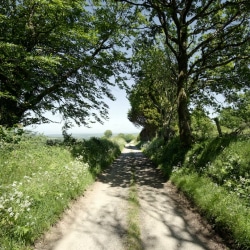Falling Herbivore Numbers Could Result In Empty Landscape

According to the results of a new study, the populations of some of the world’s largest herbivores have fallen so much; we are now at risk of an empty landscape. Scientists at Oregon State University say that populations of species such as tapirs, elephants, camels, zebras and rhinos are either falling or threatened by extinction in their natural habitat. This could mean fallow forests, deserts, savannah’s and grasslands.
The researchers examined 74 large species of herbivores, or animals the feed on vegetation and found that unless we take radical steps, many large and small herbivores will continue to disappear from their natural habitat which would have huge social, ecological and economic costs.
Habitat change the main cause
William Ripple the team’s lead researcher says he expects the main factor behind the endangerment of large herbivores will be habitat change. He adds that the two main driving forces behind declines in herbivore numbers are hunting by humans and habitat changes. According to the team’s analysis, the decline goes far beyond the forests and reaches into deserts, grasslands and savannah’s. As a result they have coined a new term “the empty landscape”
Herbivores in the developing world at greatest risk
The scientists say the greatest number of threatened large herbivores are located in the developing world such as Africa, India and South-East Asia. There are no threatened large herbivores in North America which has already lost the majority of its large mammals as a result of habitat changes and prehistoric hunting. Europe possesses one large threatened species, the European bison.
Livestock production also a problem
The researchers also highlight the fact that 25 per cent of the world’s largest wild herbivores now only occupy just 19 per cent of their historical ranges. Wildlife has faced competition from the production of livestock which has tripled globally since 1980. This has meant many of the world’s large herbivores have had their access to water, land and forage reduced as well as increasing their risk of disease.
All species could be affected
The authors of the study say that that other parts of the ecosystem will diminish as a result of the loss of large herbivores. This means that large predators such as lions and tigers will have less access to food. It also means there will be less opportunity for plants to disperse their seeds and more frequent and intense wildfires. This in turn will slow down the cycling of nutrients from vegetation to the soil and impact the habitat of smaller species such as fish and birds.



